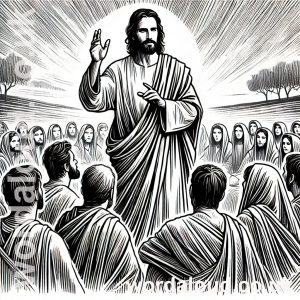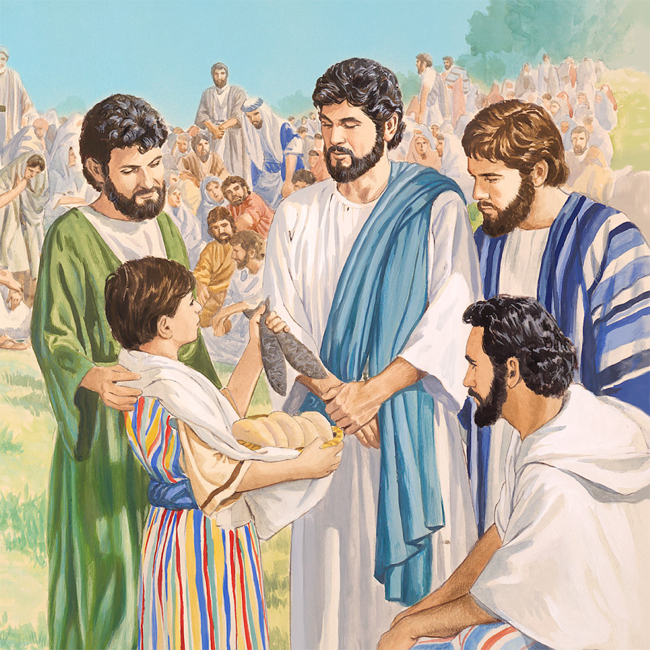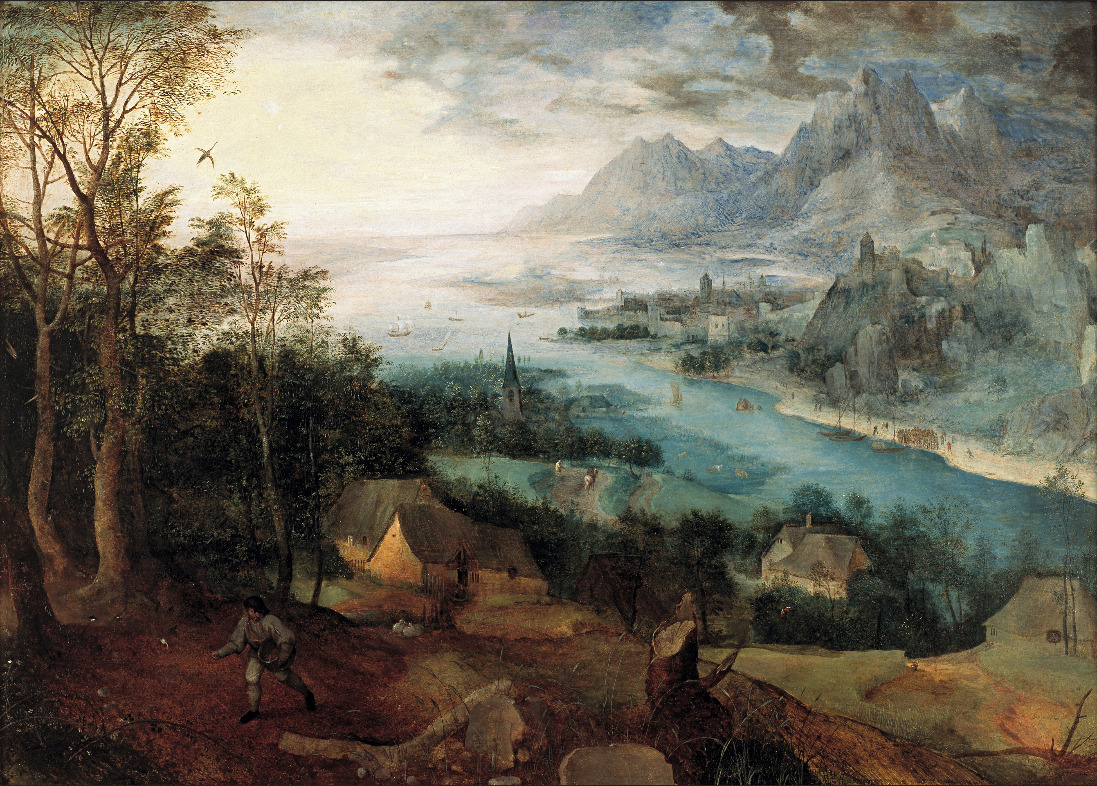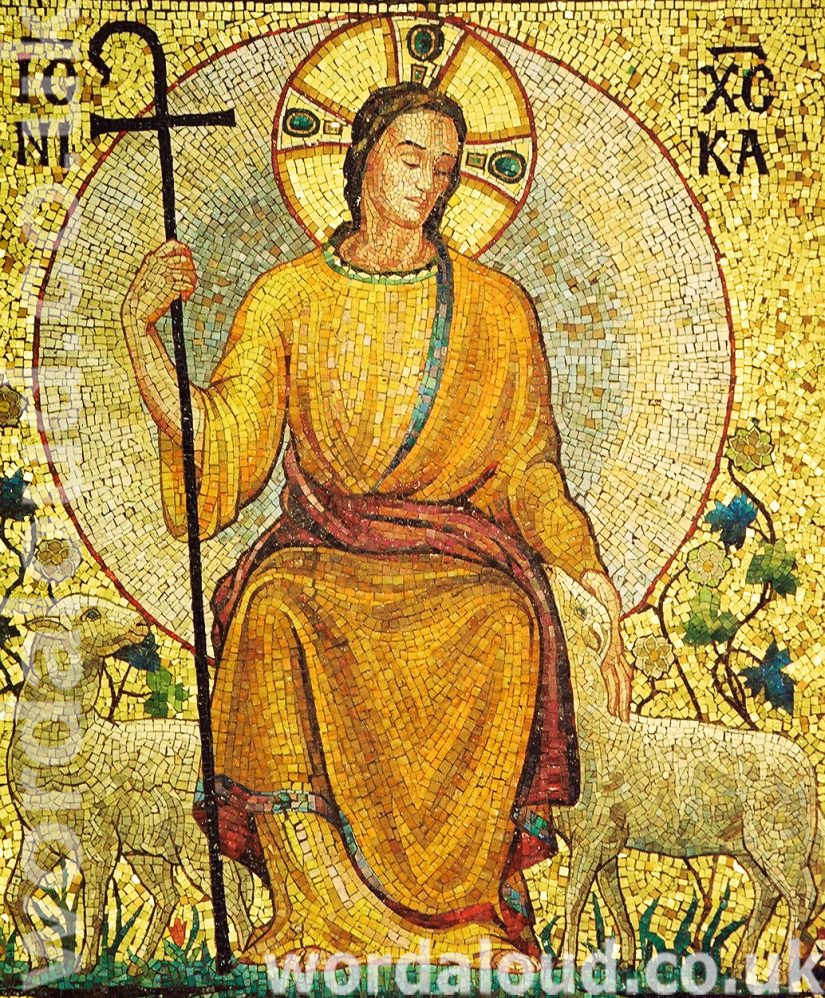Christian Art | A Boy Offers Jesus His Lunch To Share
Mark 8: 1-10 – Week 5 Ordinary Time, Saturday (Audio Bible KJV, Spoken Word)
1 IN those days the multitude being very great, and having nothing to eat, Jesus called his disciples unto him, and saith unto them,
2 I have compassion on the multitude, because they have now been with me three days, and have nothing to eat:
3 And if I send them away fasting to their own houses, they will faint by the way: for divers of them came from far.
4 And his disciples answered him, From whence can a man satisfy these men with bread here in the wilderness?
5 And he asked them, How many loaves have ye? And they said, Seven.
6 And he commanded the people to sit down on the ground: and he took the seven loaves, and gave thanks, and brake, and gave to his disciples to set before them; and they did set them before the people.
7 And they had a few small fishes: and he blessed, and commanded to set them also before them.
8 So they did eat, and were filled: and they took up of the broken meat that was left seven baskets.
9 And they that had eaten were about four thousand: and he sent them away.
10 ¶ And straightway he entered into a ship with his disciples, and came into the parts of Dalmanutha.
Today’s Bible verses are an extraordinary act of forgetting and of remembering. What do we mean by this? First off, we mean that Mark has not forgotten that he has already told us one story of Jesus feeding the multitude. To suggest otherwise than this would be absurd. We are intended to read this Gospel account of the feeding of a multitude in the light of our reading of the previous miracle of feeding. That’s part of the point.
These Gospel verses are, though, also recalling an act of forgetting, in that the verses deliberately recall the forgetting of Jesus’ disciples, whose hearts are hardened and who cannot think just how so many people might be fed, despite the fact that the disciples have already witnessed a feeding miracle while they have journeyed with Jesus.
The disciples’ hearts are hardened. The use of the word ‘hearts’ is significant. This is also something of a recurrent theme with Mark: there is a very raw quality to the response of Jesus’ disciples to Jesus, often characterized by disbelief.
In Mark’s Gospel, especially, Jesus can at times seem very much alone, while we are told of how his disciples simply do not understand what is happening or who Jesus is. This must represent to us one aspect of the truth of Jesus’ situation, and Jesus’ person as we approach him now.
As in other occurrences of the feeding miracles, Jesus asks those present to sit down on the ground. This has particular meaning. What Jesus is saying to the people is that they need to disarm themselves. Jesus is saying: Stop fighting; sit down.
Jesus brings to us eternal salvation, and he has also come to ask for peace on Earth now. So, Jesus says to the men gathered: sit down, put your differences aside, and share a meal.
This is an astonishing message. It is a message of peace, enacted in these verses as the people obey Jesus and sit down, as they share a meal together and are satisfied; and which resonates for all time.
Whenever we discover hatred and conflict in our hearts against any of our fellow human beings, Jesus has told us what we should do. This is that we should sit down, lose any aggressive posture, and share a meal.
If we do this, we shall be satisfied. Thanks be to God. Amen.
Concluding Prayer
Give us perfect peace, Lord,
so that we may delight in serving you
all the days of our life,
and at the last, with our Lady’s help,
come safely to your presence.
Through Christ our Lord.

![]()








